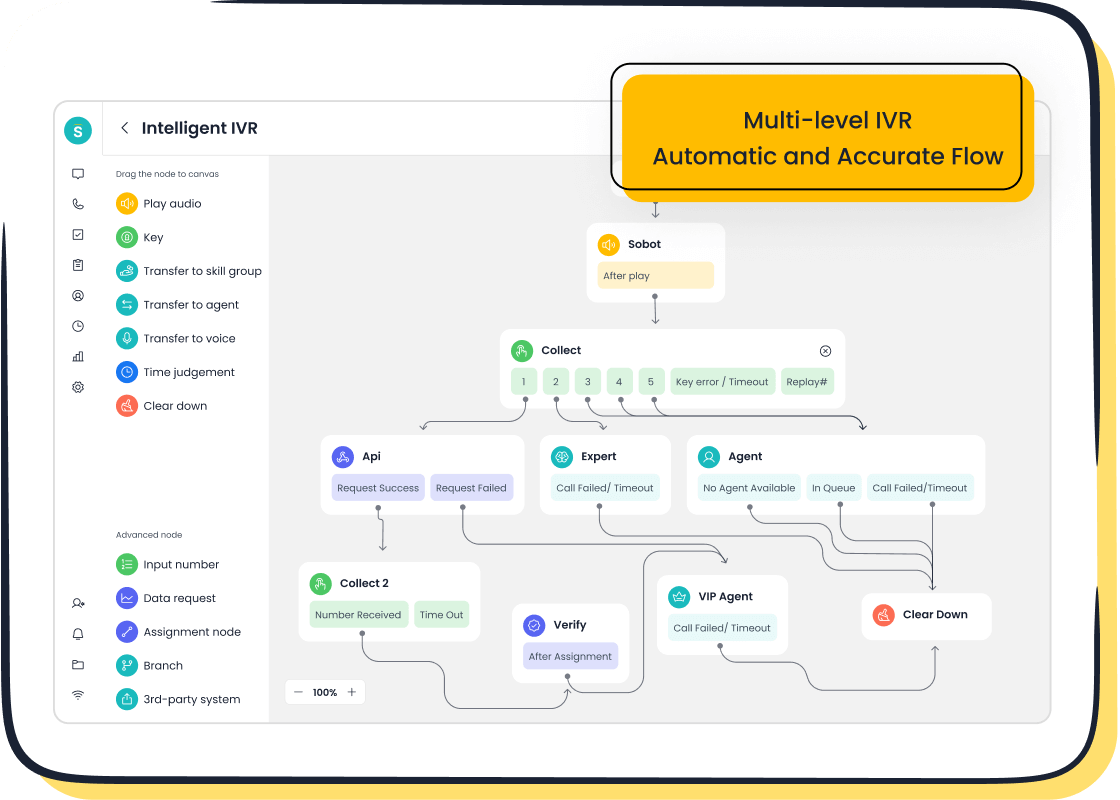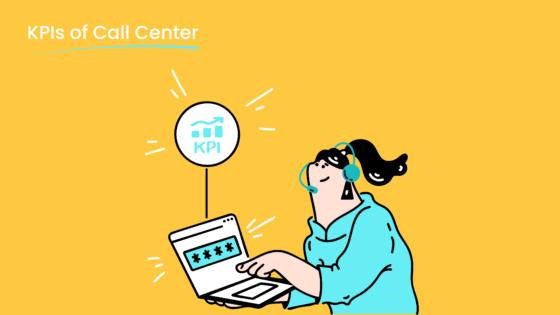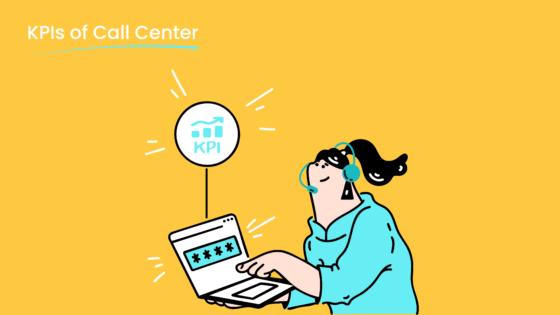Effective After-Sales Support Tips for Better Retention

You know that the journey with your customers doesn’t end after a purchase, right? In fact, it’s just the beginning. After-sales service support plays a vital role in how customers perceive your brand and whether they’ll stick around. Studies show that improving post-sale service can significantly enhance customer satisfaction and retention. This isn’t just about solving problems; it’s about building trust and creating exceptional customer interactions that make people feel valued.
Offering excellent customer service through robust customer support options, like Sobot’s all-in-one solutions, guides businesses in achieving customer service excellence. These tools don’t just resolve issues—they boost word-of-mouth referrals and foster loyalty. When you prioritize after-sales service support, you’re not just helping customers; you’re crafting relationships that last.
Understanding After-Sales Service and Its Importance
What is After-Sales Service
After-sales service refers to the support and assistance you provide to customers after they purchase your product or service. It’s not just about fixing problems; it’s about ensuring customers get the most value from their purchase. This can include services like warranties, repairs, upgrades, and personalized engagement. Whether you’re in retail, manufacturing, or gaming, after-sales activities help you build trust and loyalty.
“After-sales service isn’t limited to manufacturers or retailers. It can also be delivered by third-party providers offering customer support or training.”

For example, Sobot’s Voice/Call Center offers features like intelligent IVR and AI-powered Voicebot to streamline customer interactions. These tools ensure customers receive efficient and personalized support, enhancing their overall satisfaction.
Why After-Sales Service is Key to Customer Experience
You know how important it is to keep your customers happy, right? After-sales service plays a huge role in shaping their experience. Studies show that exceptional after-sales activities, like warranties and personalized engagement, build trust and foster loyalty.
| Aspect of After-Sales Service | Impact on Customer Experience |
|---|---|
| Customer Support | Builds trust and satisfaction |
| Warranties | Enhances perceived value |
| Maintenance | Ensures product longevity |
| Personalized Engagement | Fosters loyalty and relationships |
When you prioritize after-sales service support, you’re not just solving problems. You’re creating memorable experiences that make customers want to stick around. For instance, Samsung achieved a 97% customer satisfaction rate by integrating Sobot’s omnichannel solution, which unified communication channels and provided seamless support.
Common Standards for High-Quality After-Sales Service
High-quality after-sales service isn’t just about being helpful—it’s about meeting industry standards that customers expect. Here are some defining features:
- Customer Satisfaction: Make customers feel valued to encourage loyalty.
- Customer Retention: Build trust to keep customers coming back.
- Positive Brand Reputation: Deliver great service to attract new customers.
- Increase Revenue: Satisfied customers often buy more.
Certifications like the Five-Star After-Sales Service Certification reflect the quality of after-sales service. They ensure your service meets specific benchmarks, giving customers confidence in your brand.
Sobot’s solutions, such as its AI-powered Voicebot, help businesses achieve these standards by providing efficient and personalized support. With tools like these, you can elevate your after-sales service and stand out in competitive markets.
Key Benefits of Effective After-Sales Service Support
Enhancing Customer Loyalty and Retention
When you deliver excellent customer service after a sale, you’re not just solving problems—you’re building trust. Customers who feel valued are more likely to stick around, and that’s where after-sales service shines. For example, companies like Wajax focus on understanding customer needs, which reduces churn and encourages repeat business. Similarly, Heineken prioritizes relationship-building and feedback, leading to stronger loyalty.
Here’s a quick look at how effective strategies impact retention:
| Company | After-Sales Service Strategy | Results |
|---|---|---|
| Company A | Proactive after-sales service strategy | Reduced customer complaints by 30%, increased retention by 15% |
| Company B | 24/7 technical support and user-friendly online knowledge base | Significant rise in customer satisfaction ratings and boost in sales |

By investing in after-sales service support, you can create positive experiences that keep customers coming back. Tools like Sobot’s Voice/Call Center make this easier by offering features like intelligent IVR and AI-powered Voicebot, ensuring every interaction feels personal and efficient.
Building a Positive Brand Perception
Your after-sales service can shape how customers see your brand. A proactive approach—like reaching out with personalized assistance—shows customers you care. This not only improves satisfaction but also positions your company as customer-centric. In fact, more than two-thirds of consumers associate fast resolutions with positive experiences, which can significantly enhance your brand’s reputation.
Take Samsung, for instance. By using Sobot’s omnichannel solution, they unified communication channels and provided seamless support. This led to a 97% customer satisfaction rate, proving that great after-sales service can transform how customers perceive your brand.
Increasing Customer Lifetime Value (CLV)
After-sales service doesn’t just make customers happy—it boosts your bottom line. When customers stay loyal, their lifetime value increases. Metrics like customer retention rate and Net Promoter Score (NPS) highlight this impact. Higher retention rates mean customers are more likely to make repeat purchases, while a strong NPS reflects loyalty and satisfaction.
| Metric | Description |
|---|---|
| Customer Retention Rate | Measures the percentage of customers who continue to engage with the business over time. Higher rates lead to increased CLV. |
| Customer Acquisition Cost | Understanding the costs involved in acquiring new customers; a lower CAC relative to CLV indicates a more profitable customer base. |
| Net Promoter Score | Helps gauge customer satisfaction and loyalty, which can influence CLV positively. |

Sobot’s solutions, like its AI-powered Voicebot, help businesses improve these metrics by providing efficient and personalized support. This not only enhances customer loyalty but also drives long-term profitability.
Proactive Communication for Better Customer Experience

The Role of Proactive Communication in After-Sales Support
Proactive communication is a game-changer in after-sales service. Instead of waiting for customers to reach out with questions or complaints, you take the lead in providing updates, solutions, and helpful information. This approach builds trust and shows customers that you genuinely care about their experience.
Research highlights its importance. For instance, proactive communication reduces complaints by 40% and boosts customer satisfaction by 85%. When customers receive updates about delays—like parcel deliveries—98% don’t contact customer service to complain. This simple act of keeping customers informed transforms potential frustrations into loyalty.
Sobot’s Voice/Call Center makes proactive communication effortless. Features like intelligent IVR and AI-powered Voicebot allow you to send timely updates and address customer concerns before they escalate. By using tools like these, you can create a seamless after-sales experience that keeps customers happy and engaged.
Examples of Proactive Communication Strategies
You don’t need to reinvent the wheel to implement proactive communication. Proven strategies already exist to help you enhance customer satisfaction:
- Regular updates on order status reduce customer anxiety and minimize inquiries.
- Surveys demonstrate your commitment to customer satisfaction while gathering valuable feedback.
- Proactive communication about delivery timelines builds trust and sets clear expectations.
- Cities like Richfield use platforms like Yoppify to inform residents about infrastructure repairs, boosting satisfaction.
- Grand Water & Sewer Services Agency shares water quality reports to ensure customers feel safe and informed.
- Notifications about conservation programs, like those from Mt. Pleasant City, promote community engagement.
Sobot’s omnichannel solution supports these strategies by unifying communication channels. Whether it’s email, social media, or voice calls, you can deliver consistent and proactive updates across all platforms.
Steps to Implement Proactive Communication with Tools like Sobot
Implementing proactive communication doesn’t have to be complicated. Here’s how you can get started:
- Understand Your Customers: Use analytics to identify common concerns and preferences. Sobot’s Voice/Call Center provides real-time monitoring and insights to help you tailor your approach.
- Automate Updates: Set up automated notifications for order status, delivery delays, or service reminders. Sobot’s AI-powered Voicebot can handle this efficiently.
- Personalize Communication: Address customers by name and reference their purchase history. Sobot’s unified workspace consolidates customer data, making personalization easy.
- Gather Feedback: Use surveys to understand customer needs and improve your service. Sobot’s omnichannel solution allows you to collect feedback seamlessly across multiple channels.
- Monitor and Adjust: Continuously analyze the impact of your communication strategies. Sobot’s data analytics tools provide actionable insights to refine your approach.
By leveraging tools like Sobot, you can implement proactive communication strategies that enhance customer experience and strengthen after-sales relationships.
Personalized Follow-Ups to Strengthen Relationships
Why Personalization Matters in After-Sales Service
Personalization isn’t just a buzzword—it’s a powerful way to make your customers feel valued. When you tailor your communication to their needs, it shows you care about their experience. Research backs this up. Keypoint Intelligence found that 71% of consumers believe personalization is essential for a great customer experience. Younger customers especially appreciate personalized messaging, which fosters loyalty and strengthens relationships.
A case study from a small tech company revealed that personalized follow-ups led to a 25% increase in customer retention. Satisfied customers not only stick around but also refer others, expanding your client base. This ripple effect boosts profitability and builds trust. By prioritizing personalization, you’re not just improving after-sales service—you’re creating lasting connections.
How to Conduct Effective Follow-Ups
Effective follow-ups don’t have to be complicated. Start by reaching out to customers after a purchase to check if they’re satisfied. Use feedback forms or surveys to gather insights. Monitor online reviews and social media to understand customer sentiments. These steps help you identify pain points and address concerns before they escalate.
Here’s a quick guide to follow-up techniques:
- Implement feedback forms on your website or emails to collect customer input.
- Follow up after transactions to ask about their experience and resolve issues.
- Use big data to map the customer journey and personalize interactions.
For example, Starbucks actively seeks feedback through platforms like "My Starbucks Idea," which improves customer satisfaction. Similarly, Uber uses NPS scores to gather real-time feedback, allowing them to enhance service quality. These strategies show how follow-ups can transform customer relationships.
Automating Follow-Ups with Sobot's Voice/Call Center
Automation takes follow-ups to the next level. Sobot’s Voice/Call Center makes it easy to send timely updates and reminders. Features like intelligent IVR and AI-powered Voicebot streamline communication, saving time and boosting efficiency.
| Benefit | Description |
|---|---|
| Improve customer satisfaction | Through timely and actionable insights. |
| Enhance team performance | By tracking responses with a centralized system. |
| Save time and boost efficiency | Using automation. |
Imagine sending personalized messages to customers without lifting a finger. Sobot’s tools allow you to automate follow-ups while maintaining a human touch. This ensures every customer feels valued, improving loyalty and retention. By leveraging technology, you can focus on building relationships while the system handles the rest.
Efficient Issue Resolution for Enhanced Satisfaction
Best Practices for Quick and Effective Problem-Solving
Resolving customer issues quickly and effectively is a cornerstone of great after-sales service. You can follow these best practices to ensure your customers leave every interaction satisfied:
- Effective Communication: Keep your messages clear and concise. Customers appreciate transparency and trust businesses that communicate well.
- Quick Response Time: Responding promptly shows reliability and respect for your customers’ time.
- Personalization and Customization: Tailor your solutions to individual needs. This makes customers feel valued and understood.
- Empathy and Problem-Solving: Listen to frustrations and offer thoughtful solutions. Empathy builds loyalty and trust.
- Streamlined Return and Exchange Policies: Simplify processes to reduce stress and boost confidence in your brand.
The HEARD method is another proven approach to resolving issues efficiently. It focuses on hearing the customer, empathizing with their concerns, apologizing when necessary, resolving the issue, and diagnosing the root cause. This structured method improves interactions and strengthens relationships.
Training Teams for Efficient Issue Resolution
Your team plays a huge role in delivering exceptional after-sales service. Training them to handle issues effectively can make all the difference. Companies like Google and the American Red Cross have adopted innovative programs to enhance team efficiency:
- Google’s Emotional Intelligence Training: Their "Search Inside Yourself" program teaches mindfulness and emotional intelligence. This improves communication and collaboration.
- Conflict Resolution Skills: The American Red Cross prioritizes training employees to de-escalate tense situations. This ensures smoother interactions and better outcomes.
- Customized Leadership Training: Focus on emotional intelligence and active listening to prepare managers for conflict management.
By investing in training, you empower your team to handle challenges with confidence and professionalism. This leads to faster resolutions and happier customers.
Leveraging Sobot's AI-Powered Voicebot for Faster Resolutions

Technology can take your issue resolution to the next level. Sobot’s AI-powered Voicebot is designed to streamline after-sales interactions and deliver quick solutions. Its intelligent features include:
- Intent Recognition: The Voicebot understands customer needs and provides accurate responses instantly.
- Smart Call Routing: Calls are directed to the right agent or department, reducing wait times.
- 24/7 Availability: Customers can get support anytime, improving satisfaction and retention.
Imagine a customer calling with a question about your product. Instead of waiting for an agent, the Voicebot provides immediate assistance, saving time for both parties. This boosts efficiency and ensures every customer feels valued. With tools like Sobot’s Voicebot, you can resolve issues faster and enhance your after-sales service.
Gathering and Utilizing Customer Feedback
The Importance of Feedback in Improving After-Sales Service
Customer feedback is your secret weapon for improving after-sales service. It’s not just about hearing what went wrong; it’s about understanding how to make things better. When you actively listen to negative feedback and address concerns quickly, you can turn unhappy customers into loyal advocates. Trends in feedback often reveal areas that need improvement, helping you reduce churn and boost customer sentiment.
Feedback also plays a big role in product development. When you listen to what customers want, you can refine your offerings to meet their needs. This doesn’t just improve satisfaction—it builds loyalty and encourages repeat business. For example, analyzing feedback from Sobot’s Voice/Call Center users has helped businesses identify recurring issues and optimize their customer support strategies.
“Feedback isn’t just data—it’s a roadmap to better service and stronger relationships.”
Methods for Collecting Actionable Customer Feedback
You’ve got options when it comes to gathering feedback. Some methods work better depending on your industry or customer base. Here’s a quick look at effective ways to collect actionable insights:
| Method | Description |
|---|---|
| Customer Interviews | Create a safe space for open-ended questions to capture honest responses and insights. |
| Feedback Forms | Use detailed questions to gather specific experiences without leading customers. |
| In-Moment Feedback | Ideal for e-commerce, this method collects immediate feedback after service to resolve issues quickly. |
| Open-ended Surveys | Ask questions like “Tell us about your experience” to encourage genuine and detailed feedback. |
Sobot’s omnichannel solution makes collecting feedback seamless. Whether it’s through live chat, email, or voice calls, you can gather insights across multiple channels and analyze them in one unified workspace.
Using Feedback to Refine After-Sales Strategies
Feedback isn’t just for show—it’s a tool to refine your after-sales strategies. By identifying patterns in feedback data, you can detect recurring issues and address them proactively. Segmenting feedback by demographics or product types allows you to target specific areas for improvement.
Prioritizing feedback ensures your resources go where they’ll have the most impact. For instance, if customers frequently mention delays in response times, you can focus on optimizing your support processes. Sobot’s AI-powered Voicebot helps businesses integrate feedback into their workflows, enabling faster resolutions and personalized interactions.
Here’s how feedback drives improvement:
- It highlights consistent themes, helping you tackle common pain points.
- It fosters a responsive culture by integrating customer insights into product development.
- It boosts satisfaction by showing customers you value their opinions.
When you use feedback effectively, you’re not just improving your service—you’re building trust and loyalty that lasts.
Leveraging Technology to Optimize After-Sales Service

Tools and Platforms for Streamlining After-Sales Support
Technology has revolutionized how businesses handle after-sales. With the right tools, you can simplify processes, improve efficiency, and deliver exceptional customer experiences. Here are some game-changing technologies that are transforming after-sales support:
- AI and Machine Learning (ML): These tools analyze customer feedback and service history to predict issues before they arise.
- IoT Sensors: Devices like IoT sensors in vehicles provide real-time data, enabling early detection of potential problems.
- Advanced Analytics: By aggregating data, analytics platforms help businesses optimize service strategies and inventory management.
- CRM Systems: Integrated CRM platforms allow you to deliver personalized service by providing a complete view of customer interactions.
- AI Chatbots: These bots offer instant assistance, reducing wait times and improving customer satisfaction.
For example, customer service software powered by AI provides insights into customer journeys, enabling you to offer contextually relevant support. Similarly, sales tracking tools enhance productivity by offering detailed performance metrics. These technologies not only streamline operations but also elevate the overall customer experience.
How Sobot's Voice/Call Center Enhances Customer Experience
Sobot’s Voice/Call Center is a prime example of how technology can transform after-sales service. It combines advanced features with user-friendly tools to deliver seamless support. Here’s how it makes a difference:
| Metric | Result |
|---|---|
| Reduction in inbound discussion volume | 20% |
| Increase in positive feedback | 96% + |
| Correct answers provided by AI platform | Over 80% |
| Customer satisfaction rate | Over 95% |
| Problems solved | 85% |
| Customer happiness rate | 99% |

The platform’s AI-powered Voicebot ensures customers get accurate answers quickly. Smart call routing directs inquiries to the right agent, reducing wait times. With 24/7 availability, customers can access support anytime, enhancing satisfaction and loyalty.
Sobot also integrates seamlessly with existing CRM systems, providing a unified workspace for agents. This allows them to access customer data instantly, enabling personalized and efficient interactions. Whether it’s resolving issues or following up on feedback, Sobot’s Voice/Call Center ensures every touchpoint adds value to the customer experience.
Examples of Technology-Driven After-Sales Success Stories
Real-world examples show how technology can elevate after-sales service. Take Samsung, for instance. By implementing Sobot’s omnichannel solution, Samsung unified its communication channels and improved data connectivity. This allowed agents to provide seamless support, leading to a 97% customer satisfaction rate and a 30% boost in agent efficiency.
Another example is a retail company that used IoT sensors to monitor product performance. By detecting anomalies early, they reduced service downtime by 40%. Similarly, a financial services firm leveraged AI chatbots to handle repetitive queries, freeing up agents to focus on complex issues. This improved their Net Promoter Score (NPS) by 25%.
These success stories highlight the power of technology in transforming after-sales strategies. By adopting tools like Sobot’s Voice/Call Center, you can achieve similar results, ensuring your customers feel valued and supported at every step.
Prioritizing after-sales service isn’t just good for your customers—it’s great for your business. When you focus on delivering exceptional support, you build trust, improve customer retention, and create lasting relationships. Studies show that retaining customers is far more cost-effective than acquiring new ones. For instance, repeat customers spend 67% more than new ones, and increasing retention rates by just 5% can boost profits by up to 95%.
Here’s a quick recap of actionable strategies:
- Use proactive communication to keep customers informed and engaged.
- Personalize follow-ups to strengthen relationships and show customers you care.
- Resolve issues efficiently with tools like Sobot’s AI-powered Voicebot.
- Gather feedback to refine your after-sales strategies and improve satisfaction.
Sobot’s Voice/Call Center makes it easy to implement these strategies. With features like intelligent IVR, smart call routing, and 24/7 availability, you can deliver seamless support that keeps customers coming back. Explore Sobot’s solutions today to elevate your after-sales game and drive long-term success.
FAQ
What is after-sales service, and why is it important?
After-sales service is the support you provide to customers after they buy your product. It’s crucial because it builds trust, boosts satisfaction, and encourages loyalty. For example, tools like Sobot’s Voice/Call Center ensure customers get quick, personalized help, making them more likely to stick around.
How can technology improve after-sales service?
Technology simplifies after-sales service by automating repetitive tasks and offering faster resolutions. Sobot’s AI-powered Voicebot, for instance, recognizes customer intent and provides instant answers. This reduces wait times and improves satisfaction. Businesses using such tools often see higher retention rates and better customer experiences.
What are some examples of proactive communication in after-sales?
Proactive communication includes sending order updates, reminders, or surveys. For instance, Sobot’s omnichannel solution lets you notify customers about delivery delays or service reminders across multiple platforms. This approach reduces complaints and shows customers you care about their experience.
How does Sobot’s Voice/Call Center help with issue resolution?
Sobot’s Voice/Call Center uses features like smart call routing and 24/7 availability to resolve issues quickly. Its AI-powered Voicebot provides instant answers, while agents access customer data in a unified workspace. This ensures faster resolutions and happier customers.
Why is gathering feedback essential for after-sales strategies?
Feedback helps you understand what’s working and what’s not. It highlights areas for improvement and shows customers you value their opinions. Sobot’s tools make collecting and analyzing feedback easy, helping you refine your strategies and boost satisfaction.
See Also
Enhancing Customer Satisfaction Through Effective Live Chat Tips
Achieving Excellence in Customer Support via Live Chat
Elevate SaaS Customer Support Using Live Chat Techniques
